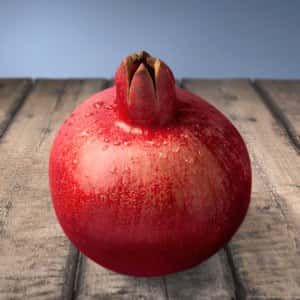
Pomegranates have a reputation as superfood that may just have gotten a boost. Researchers at the Ecole Polytechnique Federale de Lausanne in Switzerland have found that a compound derived from pomegranates can help old mice run farther than they could without it.
What Is the Pomegranate Compound and How Does It Work?
The agent is called urolithin A. Gut bacteria make urolithin A when they metabolize a pomegranate component, ellagitannin. (Other fruits and some nuts also contain ellagitannins. The list includes black raspberries, strawberries, walnuts and almonds, according to a review in Food Research International.) The mice given urolithin A were able to run 42 percent longer than those who did not receive the compound.
Experiments in laboratory worms, C. elegans, found that worms exposed to urolithin A did not accumulate dysfunctional mitochondria as other aging worms did. They also lived longer. (These worms are often used to assess interventions to increase lifespan.)
Will Urolithin A Help Humans?
It is fine to help old mice, but no one knows whether aging humans will also derive benefit from this chemical. The first clinical trials of urolithin A are expected to begin next year.
The hope is that healthier mitochondria will lead to better muscle function in old age. Since mitochondria are crucial to the functioning of all our cells, that doesn’t seem too far-fetched.

